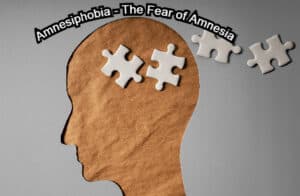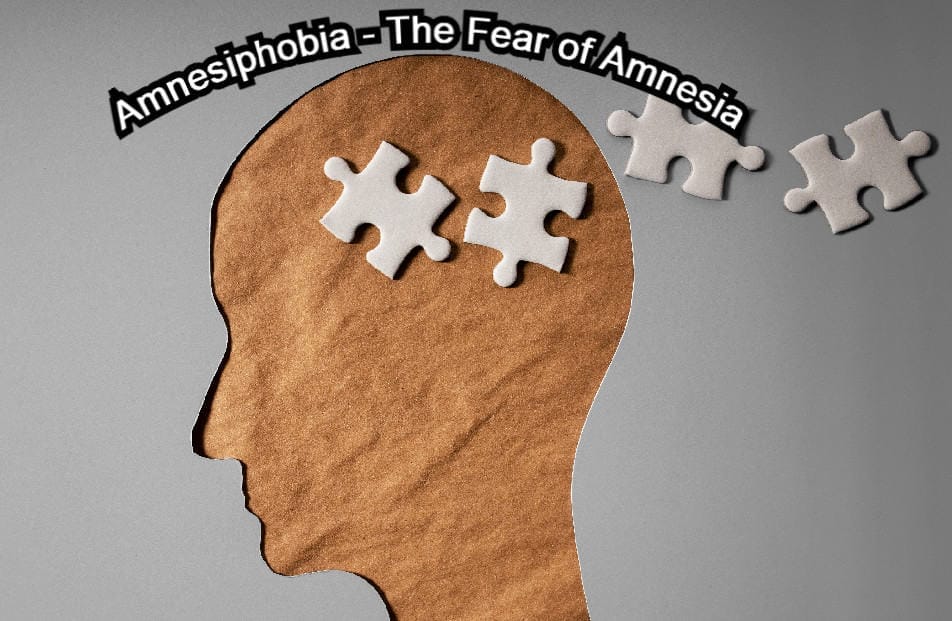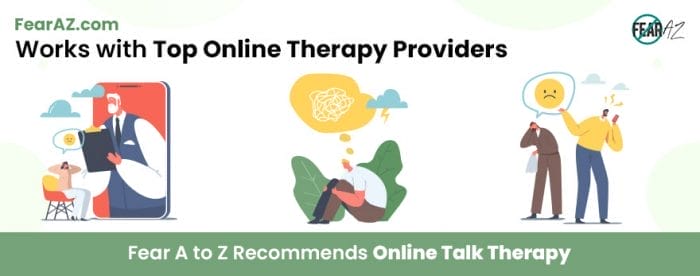Share This Article
Don’t Forget: Amnesiphobia Is Serious
Does the fear of being forgetful plague your daytime thoughts? Do you find yourself unable to shake off the panic that arises every time you think of amnesia?
Do you find it difficult to maintain and live a normal life due to symptoms of panic, anxiety, or depression? Is this because of a nagging fear that you may one day have amnesia and not be able to do everyday things?
If you answered these questions with an emphatic yes!, then you might have a fear of amnesia. What is fear of amnesia called? It is also known as amnesiphobia.
A common phobia in the irrational fears list, amnesiphobia and your experience with it can be difficult to explain to those around you.
But that doesn’t mean there’s no way out of it. By acknowledging the fear, you’re already on the path to recovery. Keep reading to learn more about the subject of your fear and how to overcome it.

Amnesiphobia Causes
The causes of amnesiphobia are never direct and can involve many factors. Some people might have a higher risk due to a genetic predisposition, environment, or an existing mental illness.
However, people with or without exposure to these factors and conditions can still develop amnesiphobia.
The phobia usually develops when the person undergoes a traumatic event that has a direct or indirect relation to the subject of fear. In this case, the subject of fear is being forgetful, or amnesia.
Some Things You Need to Know about Amnesiphobia
Amnesiphobia, like all other phobias, lies pretty much undetected unless and until a triggering thought or event occurs. These triggering events and thoughts are often related to the subject of fear, or remind the person of a traumatic event from their past.
Triggers are unique for every person and can be tangible or intangible.
Unlike disgust phobias, amnesiphobia is a fear-based phobia that centers around irrational feelings and thoughts about the subject of fear.
Most people suffering from amnesiphobia know that their fears around amnesia are unfounded and excessive. However, this doesn’t help them in overcoming the fear.
Note that amnesiphobia is not the fear of forgetting memories, also known as athazagoraphobia. That is a different type of phobia that often develops after caring for someone with Alzheimer’s disease or dementia.
A person with athazagoraphobia might also develop a fear of being forgotten. However, the symptoms arising from both phobias might appear similar.
Is amnesia scary? Yes, it is, as it can disrupt your life. Amnesiphobia or the fear of amnesia is also genuine and terrifying to those with the phobia.
Symptoms of Amnesiphobia
Amnesiphobia can manifest as physical or psychological symptoms, and sometimes, both.
Here are some of them:
Physical Symptoms
- Dry mouth
- Dizziness, shaking, or palpitations
- Excessive sweating
- Accelerated heart rate
- Hot or cold flashes
- Feeling of choking
- Shortness of breath
- Nausea or digestive issues
- Chest pain, tightness, or discomfort
- Numbness or tingling sensations
Psychological Symptoms
- Obsessive thoughts about the fear
- Uncontrollable anxiety
- Fear of fainting
- Fear of losing control
- A sense of unreality
- Anticipatory anxiety about upcoming events involving the fear
- Feelings of anger, guilt, sadness, and hurt over past episodes
- Panic attacks
- Withdrawing from others
- Depression
If you have one or more of these symptoms, you likely have amnesiphobia.
Depending on the cause of the fear of amnesia, its progression, and other factors, you may show some of these symptoms or several.
How Do You Deal with Amnesiphobia?
Most people who experience phobias and their symptoms usually start avoiding the subject of their fear. This further pushes them to restrict their engagement with others and avoid attending important events to escape any possible unpleasant situations.
Ultimately, having a phobia can put a lot of strain on your health, lifestyle, and relationships. Left unchecked, the risk of developing serious psychological disorders, such as depression, is high.
But the good news is:
You can get things under control. Here are some impactful amnesiphobia treatment options that can help.
Self-Help: What Steps Can You Take to Help Yourself
Finding the strength to face your fears can seem impossible to most amnesiphobes.
Some may benefit greatly from an amnesiphobia treatment that centers around self-help.
Self-help involves making small changes to your lifestyle to better cope with the fear and its symptoms. It reduces risk factors and their impact on the condition’s progression.
Best of all:
Self-help measures can also help prepare the person to seek professional treatment later on.
Here are some popular self-help suggestions that amnesiphobes can try:
- Eat a nutritious diet
- Engage in some form of aerobic exercise regularly
- Get seven to eight hours of peaceful sleep
- Incorporate mindful meditation into your everyday routine
- Avoid or reduce your caffeine consumption
Professional Help for the Fear of Amnesiphobia
Working with a mental health professional can help in several ways. It encourages one to address and face their fears in a controlled environment. It can also help them understand the root cause of the phobia.
The individual can receive additional guidance from a professional on how to manage and perhaps even overcome their fear entirely. It is also reassuring to talk with a professional who understands your dilemma when those around you can’t.
Mental health professionals may use many techniques to get to the root of the phobia and help clients recover. Some such techniques include:
- Exposure therapies
- Cognitive behavioral therapies (CBT)
- Hypnotherapy
- Dialectical behavior therapy (DBT)
- Neuro-linguistic programming (NLP)
The method employed is largely determined by the therapist’s observations of your symptoms.
Learning to Cope with Amnesiphobia
While all phobias are treatable, there is no guarantee which approach and amnesiphobia treatment will provide results. That is why most treatment strategies focus on helping the individual cope with the condition in their everyday lives.
While learning self-help strategies and seeking professional help can make a huge difference, support from loved ones is also important. Along with all of these, you can also try to incorporate the following tips to cope with the condition while seeking treatment:
- Maintain a positive mindset
- Research and educate yourself about amnesiphobia
- Attend discussion groups
- Practice relaxation techniques
Conclusion
You’ve taken the first step toward overcoming your amnesiphobia by reading this article.
We hope that this information will help you make an informed decision about taking the next step in your amnesia treatment.
With consistent effort, amnesiphobia will one day become a thing of the past.




